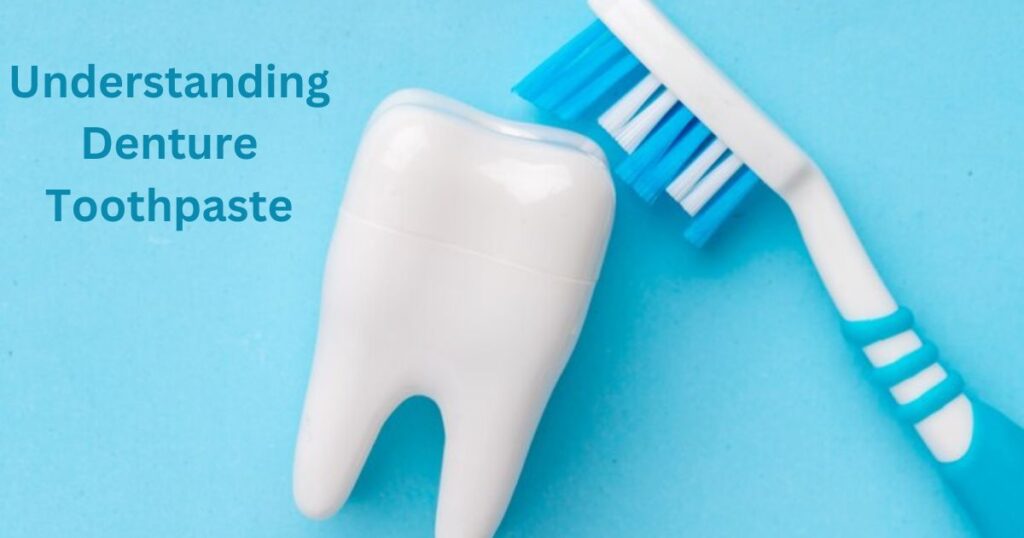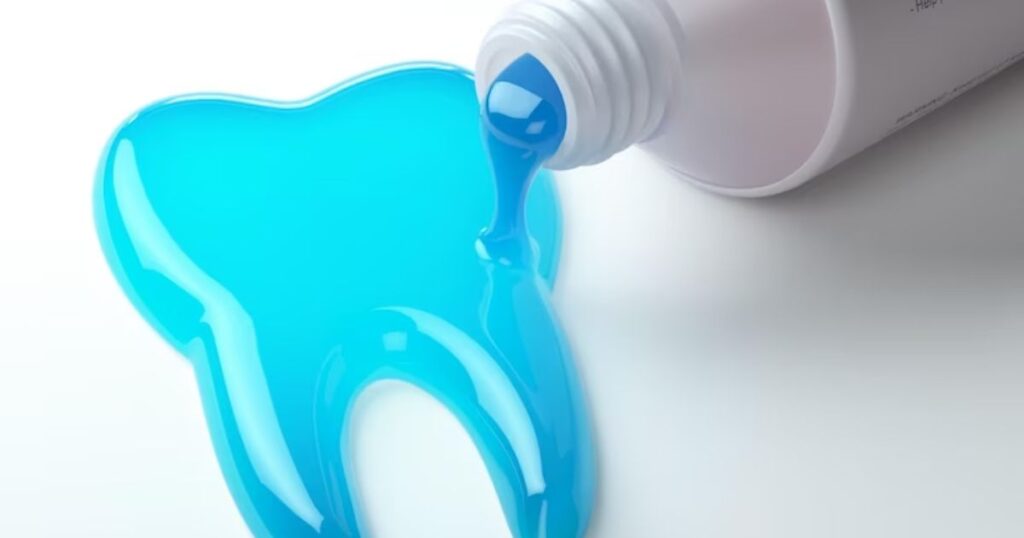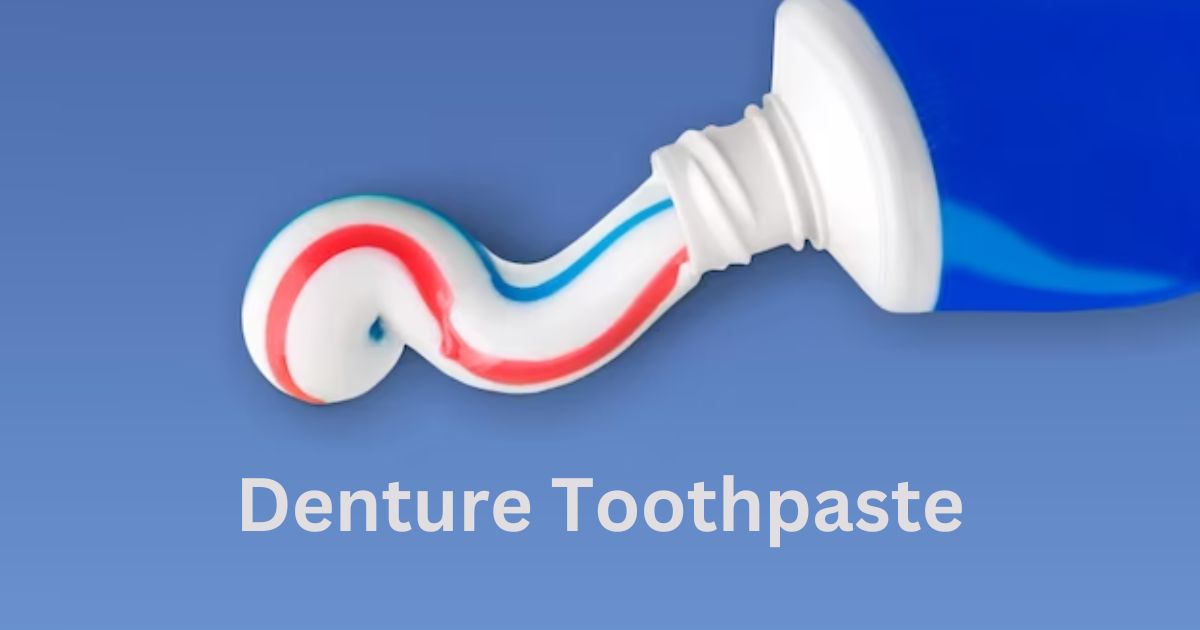Denture toothpaste stands as a specialized oral care product meticulously crafted to cater to the unique needs of denture wearers. Unlike traditional toothpaste, this variant is designed with formulations that prioritize the cleaning and maintenance of dentures, artificial teeth, and oral appliances. Its composition is tailored to address the challenges specific to denture hygiene, such as plaque buildup, stains, and bacteria accumulation on these prosthetics.
The primary goal of denture toothpaste is twofold: to clean and sanitize dentures effectively while ensuring they remain in optimal condition. Many formulations boast non-abrasive properties to prevent scratching or damaging the delicate surface of dentures, thereby prolonging their lifespan. Additionally, specialized ingredients in these toothpastes often combat issues like denture odor, aiming to provide wearers with a fresh and clean feeling.
Understanding the nuances of denture care is crucial, and denture toothpaste plays a pivotal role in maintaining oral hygiene for those reliant on these prosthetics. As a vital component of daily denture care routines, selecting the right denture toothpaste is essential for preserving oral health and the longevity of dentures.
Understanding Denture Toothpaste

Denture toothpaste is specially formulated for cleaning dentures, offering unique benefits compared to regular toothpaste. Designed to effectively remove stains, plaque, and bacteria from dentures, this type of toothpaste helps maintain oral hygiene and preserve the longevity of dental prosthetics.
Typically, denture toothpaste is non-abrasive to prevent damage to the denture material while ensuring a thorough clean. Its composition caters to the specific needs of denture wearers, addressing concerns such as odor control, plaque buildup, and gum health. Understanding its formulation, application, and benefits is crucial for proper denture care and oral health maintenance.
Choosing the Right Denture Toothpaste

Choosing the right denture toothpaste is crucial for maintaining oral hygiene and preserving the quality of your dentures. Here are some key considerations:
Non-Abrasive Formula
A non-abrasive formula in denture toothpaste is gentle yet effective, safeguarding denture surfaces from scratches or erosion. Unlike regular toothpaste, it avoids harsh particles that could damage the denture material, ensuring longevity and preserving its appearance.
This specialized formulation maintains cleanliness without compromising the integrity of the dentures, providing a safe and gentle cleaning experience. By prioritizing non-abrasiveness, these toothpastes effectively remove stains and bacteria while safeguarding the delicate structure of dentures for prolonged use and optimal oral health.
Antibacterial Properties
Antibacterial properties in products refer to their ability to combat and inhibit the growth of bacteria. These properties are crucial in various contexts, notably in healthcare and personal hygiene. Antibacterial substances or formulations help reduce the risk of infections, promoting a healthier environment.
In dental care, toothpaste with antibacterial elements can control harmful bacteria, preventing oral issues. Such properties contribute significantly to overall health maintenance by targeting and limiting the proliferation of harmful microorganisms, supporting a cleaner and safer environment.
Stain Removal
Stain removal in dental care involves eliminating discoloration from teeth or dentures caused by various factors like food, beverages, or tobacco. Specially formulated toothpaste employs mild abrasives or chemical agents to lift and dissolve stains without damaging enamel or denture material.
These toothpaste variants target surface stains, restoring the natural appearance of teeth or dentures. Effective stain removal not only enhances aesthetics but also contributes to oral hygiene, promoting confidence in one’s smile and overall oral health.
Compatibility with Denture Material
Choosing a denture toothpaste compatible with your denture material is vital. Different materials like acrylic or metal require specific formulations to prevent damage, discoloration, or deterioration. Ensure the toothpaste is tailor-made for your denture type to maintain its integrity and appearance.
Using incompatible products can cause structural changes, affecting the fit and longevity of your dentures. Opting for toothpaste designed for your specific denture material safeguards against potential harm, ensuring proper care and longevity of your dental prosthetic.
Freshness and Breath
Freshness and breath maintenance are pivotal in daily life, impacting social interactions and self-confidence. A quality oral hygiene routine, including proper brushing with effective toothpaste, combats oral bacteria, eliminating bad breath sources.
Specifically formulated toothpaste, with antibacterial properties and odor-neutralizing agents, not only refreshes the mouth but also ensures long-lasting breath cleanliness. By targeting odor-causing elements, these toothpastes promote a lasting feeling of freshness, enhancing personal comfort and boosting social ease in daily interactions.
Approved by Dental Associations
Dental associations’ approval signifies toothpaste products meeting stringent oral health standards. Endorsement from these associations ensures formulations align with safe, effective, and quality practices in oral care. Approved toothpaste undergoes rigorous testing, verifying its compatibility with denture materials, efficacy in bacterial control, and non-abrasive nature.
Such accreditation provides users confidence in selecting toothpaste that aligns with professional recommendations, promoting optimal oral hygiene and safeguarding against potential damage to dentures or oral tissues.
Sensitive Formula
A denture toothpaste with a “Sensitive Formula” is tailored to cater to delicate oral tissues and sensitive gums. This specialized formula aims to minimize irritation and discomfort often experienced by individuals wearing dentures.
By utilizing mild ingredients and avoiding harsh abrasives or strong chemicals, this toothpaste gently cleanses without causing undue sensitivity. Its soothing properties provide a gentle yet effective cleaning experience, promoting oral hygiene while prioritizing the comfort of those with sensitive oral conditions.
Recommendation from Dentist
Dentists play a pivotal role in suggesting the most suitable denture toothpaste based on individual oral conditions. Their recommendations encompass factors like oral health history, denture type, and any specific needs.
These professionals offer tailored advice, ensuring the toothpaste aligns with the patient’s oral hygiene routine, effectively cleans dentures, and maintains overall oral health. Dentists’ guidance significantly aids in preventing potential issues, ensuring optimal denture care and promoting a healthy oral environment.
Remember, proper denture care includes regular cleaning using the right toothpaste, alongside soaking and brushing techniques recommended by dental professionals.
Benefits of Denture Toothpaste
Denture toothpaste offers several advantages tailored to the unique needs of denture wearers:
Gentle Cleaning: Designed to be non-abrasive, it effectively cleans dentures without damaging their surface or structure.
Stain Removal: Specialized formulas target stains, restoring the dentures’ appearance and maintaining their aesthetics.
Antibacterial Properties: Some toothpaste contains agents that help control bacteria, reducing the risk of oral infections or bad odors.
Compatibility: Formulated to be compatible with various denture materials, preventing degradation or discoloration.
Fresh Breath: Many denture toothpaste products freshen breath, offering a clean feeling after use.
Denture-Specific Care: Tailored to address the unique needs of dentures, ensuring they stay clean and comfortable for wearers.
Regular use of denture toothpaste is integral to maintaining oral hygiene, prolonging the life of dentures, and promoting overall oral health.
Ingredients to Look for in Denture Toothpaste

Sure, here are some key ingredients commonly found in denture toothpaste:
Antibacterial Agents: Look for ingredients like chlorhexidine or cetylpyridinium chloride that help prevent bacterial growth and maintain oral hygiene.
Abrasive Agents: Mild abrasives like hydrated silica or calcium carbonate aid in removing stains and plaque without damaging the denture material.
Calcium and Phosphate: These minerals support remineralization, helping to maintain the strength and integrity of denture material.
Fluoride: Some denture toothpaste contains fluoride to help prevent tooth decay and strengthen natural teeth if present.
Gentle Cleansers: Non-ionic surfactants like sodium lauryl sulfate (SLS) or others that are gentle and non-irritating for cleaning without causing damage.
Deodorizers: Ingredients like baking soda or activated charcoal help control odors and freshen the breath.
Anti-Plaque Agents: Substances such as zinc citrate or triclosan help to prevent plaque buildup on dentures.
Remember, it’s essential to choose a denture toothpaste that suits your specific oral needs and is compatible with the type of denture you use. Always follow the instructions provided by your dentist or on the toothpaste packaging for best results.
How to Properly Clean Dentures with Toothpaste?

Cleaning dentures with toothpaste requires a gentle yet thorough approach to maintain their cleanliness and longevity. Begin by rinsing your dentures under running water to remove any loose debris.
Apply a small amount of denture-specific toothpaste to a soft-bristled toothbrush or a denture brush. Avoid using regular toothpaste as it can be too abrasive for denture materials, causing scratches or damage. Gently brush all surfaces of the dentures, including the teeth, gums, and crevices, using small circular motions. Pay particular attention to areas where food particles might accumulate.
After brushing, rinse the dentures thoroughly to remove any remaining toothpaste residue. It’s essential to follow the manufacturer’s instructions and recommendations regarding cleaning techniques and products to ensure proper care for your dentures. This routine should be done at least once a day to maintain oral hygiene and keep your dentures looking their best.
Recommended Denture Toothpaste Brands
When it comes to denture care, selecting the right toothpaste is crucial. Several trusted brands specialize in denture toothpaste formulations that cater to the specific needs of denture wearers. Polident stands out as a prominent brand, offering a range of toothpaste designed explicitly for dentures, targeting plaque, stains, and odor-causing bacteria while being gentle on denture materials.
Another reputable option is Fixodent, known for its denture adhesives, which also offers toothpaste formulated to effectively clean and maintain dentures. Additionally, Sensodyne and Colgate have denture-specific variants that focus on gentle yet thorough cleaning, catering to sensitive gums and ensuring a fresh feeling after each use.
These recommended brands are recognized for their commitment to oral care and their denture toothpaste offerings, providing solutions tailored to the unique requirements of denture wearers.
Specialized Denture Toothpaste for Specific Needs
Absolutely, when it comes to specialized denture toothpaste, there are various options catering to specific needs:
Sensitive Gum and Tissue Formula
Sensitive Gum and Tissue Formula toothpaste caters to individuals with delicate oral conditions. This specialized blend prioritizes gentleness, soothing sensitive gums, and delicate tissues during denture cleaning. Infused with mild yet effective ingredients, it offers relief from discomfort often associated with traditional toothpaste use.
Its carefully curated composition ensures a thorough clean while minimizing irritation, promoting a comfortable cleaning experience. Ideal for those with heightened sensitivity, this formula provides a gentle yet effective solution for maintaining optimal denture hygiene without exacerbating oral sensitivities.
Stain Removal and Whitening
Stain Removal and Whitening denture toothpaste is formulated to rejuvenate dentures by effectively removing stains and enhancing their brightness. These specialized toothpaste variants utilize gentle yet powerful ingredients to break down stubborn stains, restoring the dentures’ natural shine.
With non-abrasive cleaning agents, they lift away discoloration without compromising the denture’s integrity. This innovative solution not only revitalizes the appearance of dentures but also boosts confidence, offering users a brighter smile and a renewed sense of oral cleanliness and freshness.
Antibacterial and Antifungal Formulas
Antibacterial and antifungal denture toothpaste formulations offer a proactive approach to oral hygiene by targeting harmful microbes. These specialized formulas contain active ingredients that combat bacteria and fungi, helping prevent oral infections and maintain optimal oral health.
By inhibiting microbial growth on dentures, they reduce the risk of oral issues, promoting a clean mouth feel and offering added protection against infections. Regular use of these potent formulas ensures a hygienic environment, safeguarding both the dentures and the overall oral health of the individual.
Calcium and Mineral Enriched
Calcium and mineral-enriched denture toothpaste offers vital fortification for dentures. These formulations contain essential minerals like calcium to maintain the integrity of dental prosthetics, preventing erosion and maintaining structural strength.
By replenishing minerals lost during wear, they bolster the denture material, prolonging its lifespan. Regular use not only promotes a healthier oral environment but also ensures dentures remain strong and durable. This specialized toothpaste serves as a proactive measure, safeguarding against potential damage while supporting overall oral health.
Fresh Breath Formulas
Fresh Breath Formulas in denture toothpaste are tailored to combat oral odors effectively. These specialized formulations prioritize not only cleaning but also ensuring long-lasting breath freshness. Infused with breath-freshening agents like menthol or eucalyptus, they work to neutralize odors, providing a clean, pleasant mouthfeel. By targeting the root cause of bad breath, these formulas enhance confidence in social interactions. They offer a dual benefit of oral hygiene and refreshing breath, making them a popular choice for individuals seeking a complete denture care solution with lasting freshness.
Plaque Control
Plaque control in denture care is pivotal, aiming to prevent bacterial buildup on prosthetics. Specially formulated denture toothpaste for plaque control contains antimicrobial agents, inhibiting bacterial growth on surfaces. These formulations often feature gentle abrasives to dislodge plaque without harming the denture material.
By disrupting plaque formation, these toothpastes aid in maintaining oral hygiene, reducing the risk of gum inflammation, bad breath, and potential infections. Regular use of plaque control toothpaste is crucial in preserving the cleanliness and longevity of dentures for optimal oral health.
Repair and Maintenance
Repair and Maintenance denture toothpaste addresses durability and upkeep. Formulated with compounds that strengthen dentures, it aids in preventing cracks and damage. These specialized pastes often contain substances that help fill minor crevices, enhancing the overall structure. Some also focus on preventing discoloration and maintaining the natural look.
Regular use can extend the lifespan of dentures, reducing the need for frequent replacements. They offer a convenient solution for everyday care, promoting longevity and reliability for wearers seeking sustained denture performance.
Each specialized denture toothpaste targets different aspects of denture care, so choosing one often depends on your specific oral needs and preferences.
Denture Toothpaste vs. Regular Toothpaste: Key Differences
Creating a chart directly isn’t possible in this format, but I can give you the structure for a comparison table you can create:
| Feature | Denture Toothpaste | Regular Toothpaste |
| Abrasiveness | Lower abrasiveness to protect dentures | Higher abrasiveness for natural teeth |
| Cleaning Action | Designed for denture material | Designed for natural teeth |
| Antibacterial Properties | Often includes antibacterial agents | Focused on cavity prevention |
| Flavor | Mild, less intense flavors | Variety of flavors for preference |
| Ingredients | Specific for denture material care | Aimed at enamel protection and fluoride |
| Foaming Action | Generally less foaming | Contains foaming agents |
| Usage Instructions | Instructions for denture cleaning | Instructions for brushing natural teeth |
| Targeted Concerns | Removes stains, plaque from dentures | Fights cavities, freshens breath |
This table provides a basic outline to highlight the key differences between denture toothpaste and regular toothpaste. Feel free to expand on each section with specific brands, ingredients, or additional details based on your preferences or requirements.
Tips for Maintaining Denture Hygiene with Toothpaste
Absolutely! Here are some tips for maintaining denture hygiene using toothpaste:
Use a Soft-Bristled Toothbrush: Opt for a soft-bristled brush specifically designed for dentures. This helps prevent damage to the delicate surface while effectively cleaning.
Choose a Non-Abrasive Denture Toothpaste: Look for toothpaste specifically formulated for dentures. Avoid regular toothpaste, which might contain abrasive elements that can scratch the denture surface.
Thorough Cleaning: Brush your dentures at least twice a day, preferably after meals, using gentle circular motions. Ensure you clean all surfaces, including crevices and grooves.
Soak Dentures Overnight: Remove and soak your dentures overnight in a denture cleaning solution or water. This helps maintain their shape and cleanliness.
Rinse Thoroughly: After using toothpaste to clean your dentures, rinse them well under running water. This removes any remaining toothpaste residue.
Handle with Care: Avoid using hot water as it can warp dentures. Handle them with care to prevent accidental dropping or damage.
Regular Check-ups: Visit your dentist regularly to ensure your dentures fit well and to address any issues related to oral hygiene.
Avoid Whitening Toothpaste: Steer clear of whitening toothpaste unless explicitly recommended by your dentist, as these may contain abrasive agents that can damage the denture material.
Proper Storage: When not in use, keep your dentures moist by storing them in water or a denture cleaning solution. Avoid letting them dry out, which can cause them to lose their shape.
Replace When Necessary: Over time, dentures can wear down and lose their fit. Consult your dentist if you notice significant changes in fit, as it might be time for a replacement.
Remember, maintaining good denture hygiene not only ensures their longevity but also contributes to overall oral health.
The Role of Denture Toothpaste in Oral Care
Denture toothpaste plays a pivotal role in maintaining optimal oral hygiene for individuals relying on dentures. Tailored specifically for these prosthetics, this specialized toothpaste offers a gentle yet effective cleaning solution. Its formulation is designed to cleanse without abrasion, safeguarding the delicate surfaces of dentures.
By utilizing non-abrasive ingredients, denture toothpaste efficiently removes food particles, plaque, and bacteria that accumulate on these prosthetics throughout the day. Moreover, it aids in preventing staining and odors, enhancing the wearer’s confidence in their smile.
This toothpaste’s role extends beyond mere cleansing; it contributes to preserving the integrity and longevity of dentures by ensuring their cleanliness without compromising their structural integrity. Complementing regular care practices like soaking and gentle brushing, denture toothpaste stands as a crucial element in a comprehensive oral care routine for those relying on dentures, promoting both oral health and comfort.
Pros and Cons
Absolutely, here’s a pros and cons chart for denture toothpaste:
| Pros | Cons |
| Pros: | Cons: |
| 1. Formulated for dentures: | 1. Limited variety: |
| Specifically designed to clean | Not as many options compared to regular |
| dentures without causing damage. | toothpaste. |
| 2. Non-abrasive: | 2. Slightly higher cost: |
| Gentle on denture materials, | Specialized formulations may be more |
| preventing scratches or erosion. | expensive than regular toothpaste. |
| 3. Effectively removes debris: | 3. May lack fluoride: |
| Removes food particles, plaque, | Some denture toothpaste options might |
| and bacteria from dentures. | not contain fluoride, important for |
| preventing tooth decay. | |
| 4. Helps prevent staining and odors: | 4. Not suitable for natural teeth: |
| Maintains denture appearance and | Designed specifically for dentures, not |
| reduces unpleasant odors. | recommended for natural teeth. |
| 5. Promotes oral hygiene: | |
| Part of a comprehensive routine | |
| to ensure denture cleanliness. |
Remember, the advantages and disadvantages can vary depending on the specific brand or formulation of denture toothpaste, and individual preferences and needs might also influence which aspects are most significant.
FAQ’s
What is the best toothpaste for dentures?
The best toothpaste for dentures include: Polident Dentu-Creme: Polident is a well-known brand that offers a denture-specific toothpaste known as Dentu-Creme. This toothpaste is formulated to clean dentures gently without scratching, and it helps remove tough stains and plaque.
Is it OK to use toothpaste on dentures?
Use a denture cleanser. (Conventional toothpaste, bleach, vinegar and soap are not designed for denture cleaning and could, in some cases, cause damage. Scratched dentures will harbor unsightly plaque bacteria, causing denture odor. Harsh products like bleach may even turn the pink parts of your dentures white.)
Is Sensodyne toothpaste good for dentures?
For instance, you should not use toothpaste in cleaning your dentures. This is because toothpaste is abrasive to dentures, thus will create microscopic scratches on them. These scratches can serve as breeding grounds for bacteria.
Is fluoride toothpaste good for dentures?
While high fluoride toothpaste should be used by those who wear dentures, it should never be used to clean dentures themselves. This is because it can result in damage, causing the material to break down. For denture care, specialized cleaning products are available.
Can I use Colgate on dentures?
No, toothpaste is generally not recommended for cleaning dentures. Instead, you should rinse them in lukewarm water, clean them with a soft-bristled toothbrush, and then use a denture cleaning solution.
Conclusion
Denture toothpaste emerges as a tailored solution, pivotal in maintaining optimal oral care for denture wearers. Specifically formulated to delicately cleanse prosthetics without abrasive impact, it effectively removes debris, sustains appearance, and combats odors. Though limited in variety and potentially pricier, its non-abrasive nature safeguards against damage, prioritizing denture longevity.
While some lack fluoride, denture toothpaste and cleaning tablets remain a cornerstone in denture hygiene routines, promoting confidence in smiles and overall oral health. Denture toothpaste, an integral part of care, not only cleanses but also nurtures comfort, ensuring wearers enjoy sustained cleanliness and well-being in their oral regimen.











